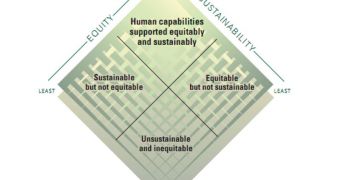Experts from the United Nations Development Program revealed a new study which states the fact that climate change can put the economical development of countries on hold or even make the numbers decrease, unless realistic measures of fighting this phenomenon will be implemented throughout the next four decades.
It seems that environmental issues appear as bumps in the authorities' way when they are keen on eradicating global poverty.
Every nation will soon have to deal with a new series of challenges which will be amplified by the effects of global warming that will appear as complications for the present strategies.
Governments must scale up their efforts in order to come up with viable solutions that will take care of both emerging problems, climate change and poverty, in an effective manner.
“Even if someone’s a climate skeptic. Put that aside for a second. If you believe in something like a moral commitment to the global community and in getting people out of poverty, we must address these environmental problems,” revealed William Orme, a spokesman for the United Nations agency, in the recent report which highlights the negative effects of the junction upon the nations' development.
Despite the fact that one might expect the government's efforts to trigger social and economical equality, the report reveals that environmental deterioration served on the same plate with social inequalities might become part of a disturbing future context.
While drawing a worst-case scenario to forecast the future, authorities say that Sub-Saharan Africa will suffer the most, taking into consideration that most of its inhabitants are already poor and dry.
An amplification of the present conditions will most likely bring the Africans to their knees, since they are would be unable to respond to a lower level of resources combined with a higher level of polluters.
All the nation will experience the dramatic effects of water and air pollution, two phenomena which will join forces with extreme temperatures, making the global agriculture significantly decrease its profit margins.
If the experts are right, most of their people who rely on the African maize and wheat harvests will be out of business by 2030.

 14 DAY TRIAL //
14 DAY TRIAL //